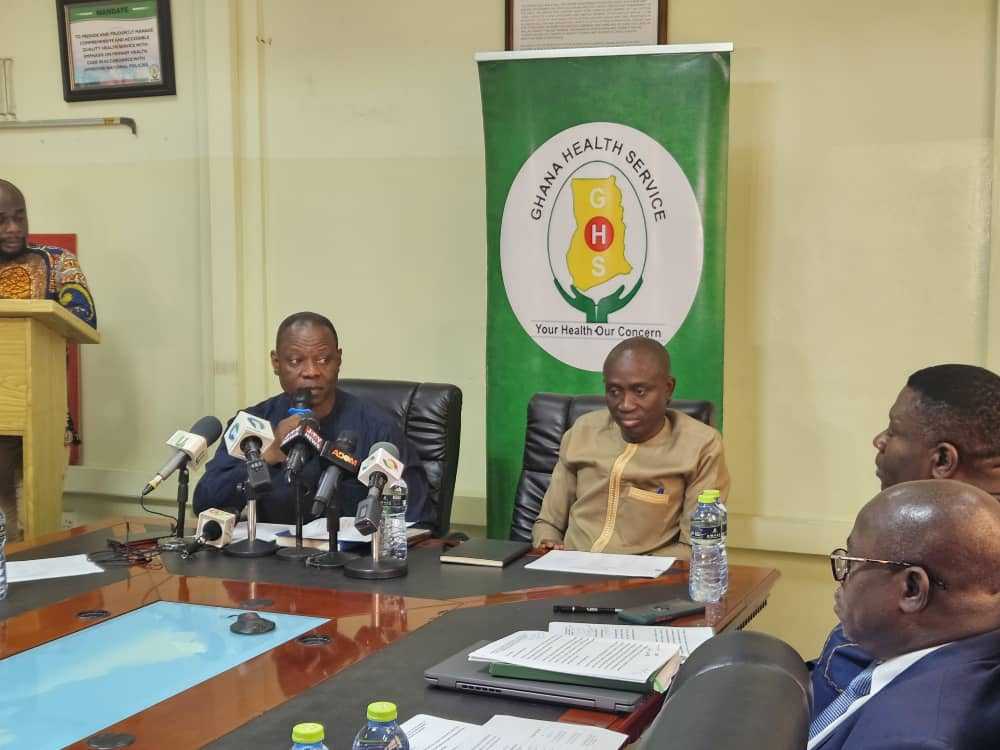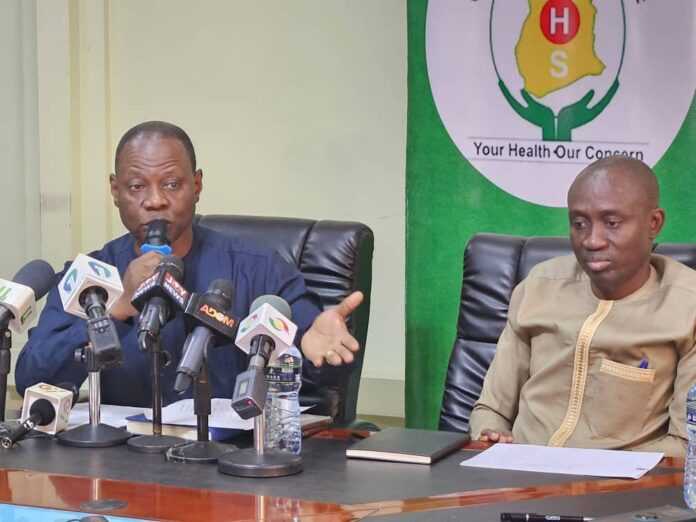Advertisement
As
part
of
efforts
to
eliminate
Onchocerciasis,
also
known
as
river
blindness
and
lymphatic
filariasis
also
known
as
elephantiasis
in
Ghana
by
2030,
the
Ghana
health
Service,
through
its
Neglected
Tropical
Diseases
Programme,
is
embarking
on
a
mass
drug
administration
in
77
oncho
endemic
districts
and
3
lymphatic
endemic
districts
in
the
next
2
weeks.
The
exercise,
which
will
start
on
Monday
July
15
to
26th
July,
is
targeting
5.8
million
persons
at
risk
for
oncho
and
440k
persons
for
elephantiasis
across
the
country.
Onchocerciasis,
known
as
river
blindness,
is
endemic
in
31
countries
in
sub-Saharan
Africa
including
Ghana.
In
Ghana,
the
disease
is
endemic
in
140
districts
and
mass
drug
administration
has
been
initiated
since
1997.
And
the
main
strategy
for
its
elimination
is
using
the
community-directed
treatment
with
Ivermectin
strategy.
For
lymphatic
filariasis
mostly
known
as
elephantiasis,
is
also
endemic
in
116
districts
and
currently
the
transmission
of
the
infection
has
been
interrupted
in
109
districts.

Patrick
Kuma-Aboagye
addressing
the
media
Health
authorities
aim
to
stop
the
spread
of
infection
through
large-scale
annual
treatment
of
all
eligible
persons
in
the
areas
where
infection
is
present.
Director-General
of
the
Ghana
Health
Service,
Dr
Patrick
Kumah-Aboagye,
speaking
at
a
media
briefing
in
Accra
on
July
11,
said
the
approach
will
provide
a
single
dose
of
medication
to
all
eligible
persons
5
years
and
above,
excluding
pregnant
women
and
breastfeeding
mothers.
According
to
him,
preventing
and
controlling
NTDs
is
central
to
ending
extreme
poverty
in
the
next
two
decades.
“Stigma
is
one
thing
that
discourages
people
from
coming
out.
So,
please
we
will
entreat
all
to
support
the
exercise.
I
want
to
also
appreciate
all
the
health
workers
and
volunteers
across
all
levels
of
service
for
their
continuous
dedication
to
the
elimination
of
NTDs,”
he
said.
The
mass
drug
administration
approach
is
proven
to
significantly
control
the
burden
of
NTDs
and
in
some
cases
elimination
can
be
achieved.


